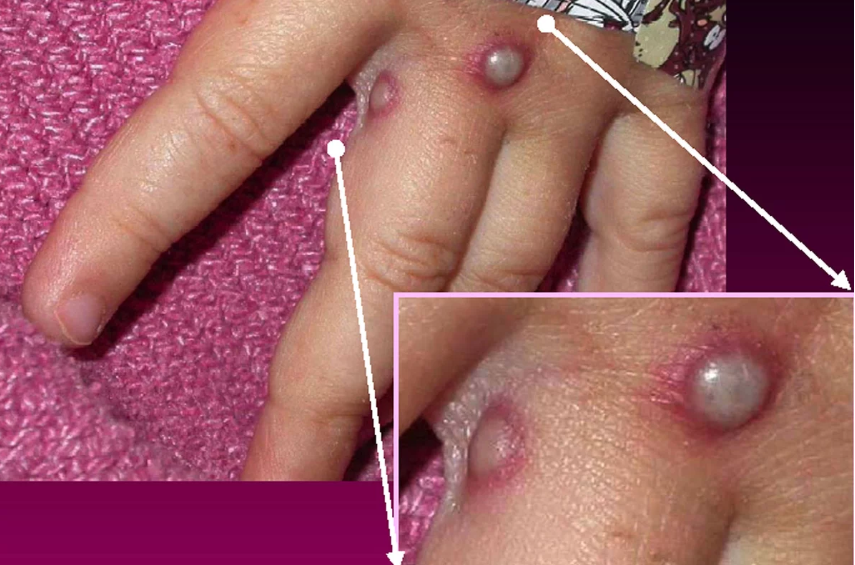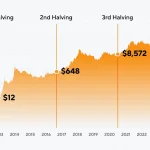Monkeypox , a rare virus disease, is spreading across Europe and America.
There is currently an outbreak of the Monkeypox virus in United Kingdom, Portugal and Spain.
So far, 36 cases spread across the countries including Europe and Portugal.
Similarly, a case also exists in the United States of America.
So, what is this disease that is becoming a global concern and how do people contract the Monkeypox virus?
Also, where do people contract it?
What Is Monkeypox?
Monkeypox is is a virus that causes illness that no one wants to have.
It springs out and spreads uniform lesions on your body.
The virus takes 6 to 16 days, or up to 21 to incubate in your body.
Also, it occurs through different stages which includes bringing out chickenpox or syphilis on your body.
It’s final stage s to formally form a scab.
Why its called Monkeypox:
People began calling the virus Monkeypox in 1958 during its first documented cases when two outbreaks occurred in colonies of monkeys kept for research.
According to the European Center For Disease Prevention and Control, ECDC, although monkeys first showed the virus, they are not major carriers.
In fact, the virus likely persists in squirrels, pouched rats, dormice or another rodent.
So, watch those rats, squirrels and other animals closely.
Symptoms of Monkeypox virus:
It causes fever, body aches, enlarged lymph nodes and eventually “pox.”
The pox is a painful, fluid-filled blisters on the face, hands and feet.
ALSO READ: What Is Entrepreneurship: Tips For Becoming Successful Entrepreneur
Monkeypox symptoms also includes headache, muscle aches, backache, swollen lymph nodes, chills and exhaustion.
It equally causes rash to develop on your body.
This often begins on the face, and then spreads to other parts of the body, including the genitals.
Fatality rate:
Monkeypox may get healed within few weeks, say two or more.
However, one version of monkeypox is quite deadly and kills up to 10% of people infected.
Mortality is higher among children and young adults.
It is also higher among immunocompromised individuals.
Also, the version currently in England is milder as its fatality rate is less than 1%. A case generally resolves in two to four weeks.
So, where do people get this Monkeypox virus?
Where do people get Monkeypox virus?
Well, health officials have just little clue where people caught the monkeypox virus.
There is serious concern that the virus may be spreading through the community — undetected — and possibly through a new route of transmission.
According to Susan Hopkins, as seen on www.cracktechnology.com, epidemiologist and chief medical adviser of the U.K. Health Security Agency (UKHSA), “This [outbreak] is rare and unusual.”
Although reports claim that more cases of the virus emanate from monkeys in Africa, the cases in England, Portugal and the Spain are not from Africa.
In fact, the victims have never had contact with anybody from Africa with the virus nor have they visited Africa over a long period of time.
So, how did they get the virus? Also, what mode of transmission could they have gotten the Monkeypox virus?
Mode of transmission:
The Monkeypox disease is a virus and so, it can be transmitted to human too human.
Generally, Monkeypox transmission to humans can occur through contact with an infected animal or human.
You can also get the virus through contact with human bodily material containing the virus.
Transmission between humans mostly occurs through large respiratory droplets like when someone coughs or sneezes.
When an infected person sneezes or coughs, the droplets travel but not far.
So, prolonged face-to-face contact is a most common way.
You can also get the Monkeypox virus through bodily fluids, lesion material, or indirect contact with lesion material.
However, the trend with those infected lately may suggest another mode of Monkeypox transmission.
Take for instance, the UK Health Security Agency (UKHSA), on 7 May, reported the first case in the UK.
Also, On 14 May 2022, it reported two more cases between two people living in the same household.
Similarly, the agency detected another four cases on 16 May.
Surprisingly, none of the cases have had contact with the first case.
But one discovery about the cases is that all of them are men and they all have confirmed they engage in homosexuality.
Meanwhile, in Portugal, five persons now have the virus while 20 others are suspected cases.
In Spain, eight cases also now exist.
Equally, the case in the U.S., the patient in Massachusetts had not recently traveled to countries where the disease occurs.
However, the patient visited Canada.
Surprisingly too, almost all the cases involve mem having sex with men (MSM).
All the cases reported a preponderance of lesions in the genital area.
Given the unusually high frequency of human-to-human transmission observed in this event, transmission between sexual partners, due to intimate contact during sex with infectious skin lesions, seems the likely mode of transmission among MSM.
So, could this be a new way of Monkeypox transmission?
“What is even more bizarre is finding cases that appear to have acquired the infection via sexual contact,” epidemiologist Mateo Prochazka at the UKHSA tweeted.
“This is a novel route of transmission that will have implications for outbreak response and control.”
“We are particularly urging men who are gay and bisexual to be aware of any unusual rashes or lesions and to contact a sexual health service without delay,” epidemiologist Hopkins said in the UKHSA’s statement.
How can Monkeypox be cured?
Well, there is no current proven, safe treatment for monkeypox virus infection.
However, according to the Centers for Disease Control and Prevention (CDC), some medications can help control the virus.
Control includes use of smallpox vaccine.
Others are antivirals and vaccinia immune globulin (VIG).
Found this interesting? Share!

























 and then
and then